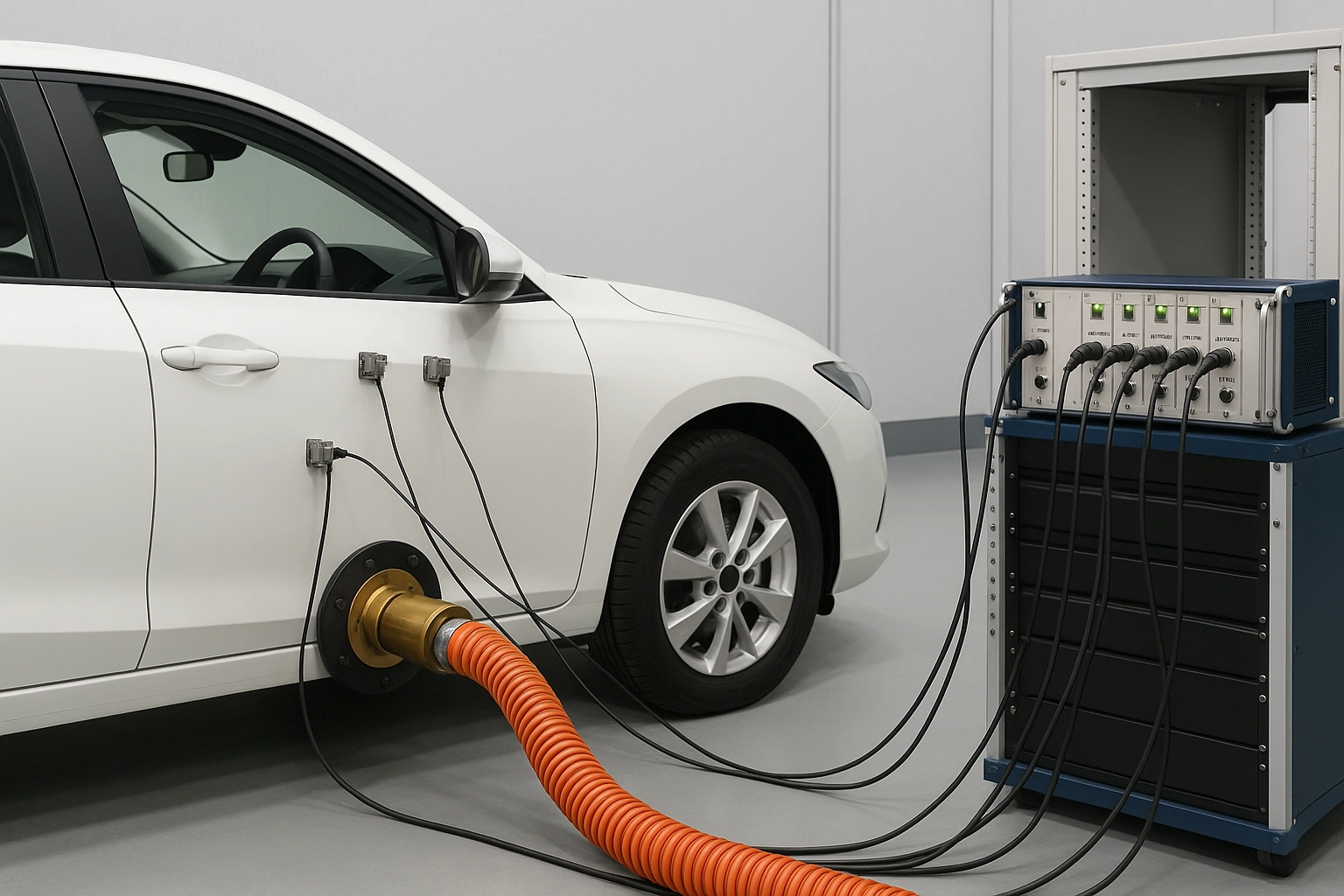UL 1703 Impact Durability and NVH Testing of Solar Panels in Vehicles
The UL 1703 standard, a pivotal component of the broader solar panel safety framework, focuses on ensuring that these panels can withstand various environmental stresses. This includes impact durability and noise, vibration & harshness (NVH) testing. The primary objective is to safeguard consumers by verifying the robustness of solar panels against potential hazards during their lifecycle in vehicles.
In automotive applications, solar panels face unique challenges due to the dynamic environments they operate within. These include exposure to road impacts, vibrations from engine operation and rough terrain, as well as thermal changes caused by varying ambient conditions. The UL 1703 standard ensures that manufacturers adhere to rigorous testing protocols designed to mimic real-world scenarios.
The testing process typically involves subjecting solar panels to controlled impact forces simulating vehicle accidents or road hazards. Additionally, NVH tests measure the sound levels and vibrations generated during various operational states to ensure they do not exceed acceptable thresholds set by regulatory bodies like the Federal Motor Vehicle Safety Standards (FMVSS).
Accurate testing is crucial for ensuring compliance with international standards such as ISO 9240-1, which provides guidelines on the measurement of sound power levels produced by machinery and equipment. Compliance also involves adhering to EN 386:2005, which specifies methods for measuring and controlling noise in road vehicles.
For solar panels installed in electric vehicles (EVs) and hybrid vehicles, NVH testing is particularly important as it directly impacts passenger comfort and vehicle safety. By addressing these factors early in the design process, manufacturers can improve overall product quality while reducing warranty claims and liability risks associated with failures during use.
Applied Standards
| Standard | Description |
|---|---|
| UL 1703 | Safety standard for photovoltaic modules used in vehicles. |
| ISO 9240-1 | Methods of measuring sound power levels produced by machinery and equipment. |
| EN 386:2005 | Specification for noise measurement in road vehicles. |
Scope and Methodology
| Test Parameter | Description |
|---|---|
| Impact Durability | Simulate vehicle accidents or road hazards to ensure structural integrity. |
| NVH Testing | Measure sound levels and vibrations during various operational states. |
The testing begins with thorough specimen preparation, which involves cleaning the solar panel surface and ensuring all connectors are properly secured. Afterward, the panels undergo rigorous impact durability tests using specialized machinery designed to replicate real-world impacts experienced by vehicles on roads or during accidents.
For NVH testing, advanced acoustic measuring equipment is utilized to capture sound levels produced when the panel operates under different conditions. Vibrations are also recorded using high-precision accelerometers attached directly onto the solar cell structure. Data collected from these tests is analyzed meticulously before final reports are generated detailing any deviations from acceptable limits.
This comprehensive approach ensures that only reliable and safe products make it into production lines, thereby protecting users and enhancing brand reputation for automotive manufacturers who incorporate such components into their designs.
Benefits
- Enhanced safety through rigorous testing of critical performance parameters.
- Improved reliability leading to reduced warranty claims and liability risks.
- Compliance with international standards ensuring market access in multiple regions.
- Promotion of brand reputation by demonstrating commitment to quality and consumer protection.
By adhering strictly to the UL 1703 standard, manufacturers can ensure their solar panels meet all necessary requirements for safe installation and operation within automobiles. This not only protects end-users but also fosters trust among consumers regarding the reliability of these products.





